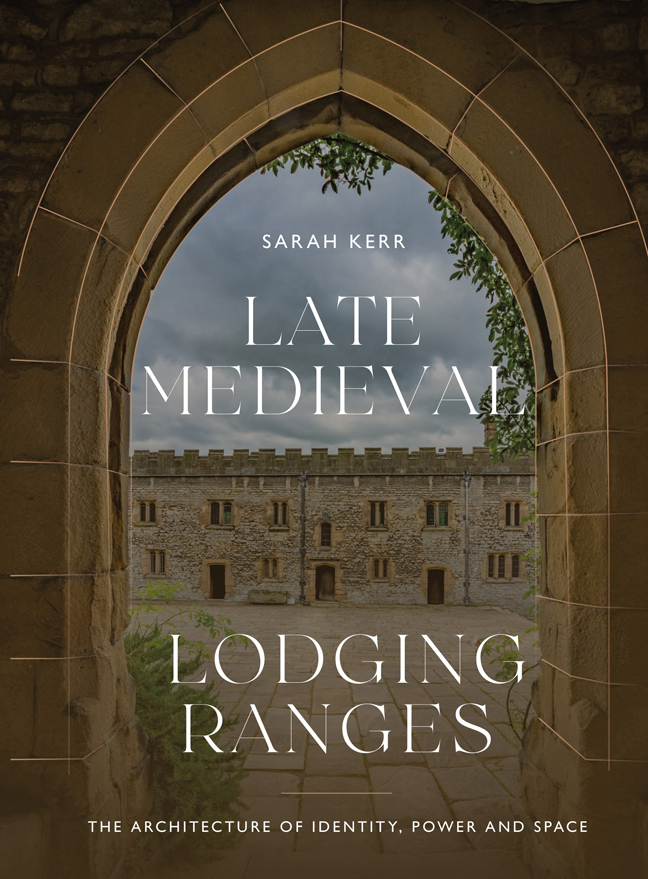Book contents
- Frontmatter
- Dedication
- Contents
- List of Illustrations
- Preface and Acknowledgements
- List of Abbreviations
- Introduction: What are Lodging Ranges?
- 1 A Room of One's Own
- 2 Expressions of Individuality and Collectivity
- 3 The Theatre of Display
- 4 The Spaces Between
- Envoi: Narratives in Stone and Space
- Glossary
- Gazetteer A
- Gazetteer B
- Bibliography
- Index
- Miscellaneous Endmatter
Envoi: Narratives in Stone and Space
Published online by Cambridge University Press: 21 February 2024
- Frontmatter
- Dedication
- Contents
- List of Illustrations
- Preface and Acknowledgements
- List of Abbreviations
- Introduction: What are Lodging Ranges?
- 1 A Room of One's Own
- 2 Expressions of Individuality and Collectivity
- 3 The Theatre of Display
- 4 The Spaces Between
- Envoi: Narratives in Stone and Space
- Glossary
- Gazetteer A
- Gazetteer B
- Bibliography
- Index
- Miscellaneous Endmatter
Summary
Medieval architecture was imbued with individual rationale and wider social norms. Each stone was a deliberate choice, whether it created a window of a precise size, demarcated a certain door or articulated a particular fireplace. This accumulation of form, and the space it divided, has been described as a building's architectural language. As with a textual source, architecture can be considered a snapshot of the society from which it derived as well as the composite individual decisions involved. When a building is examined – when the architectural language is read – it is an opportunity to decipher both society's ideals and each decision in its creation. This was one of the fundamental premises of this book: that the medieval fabric is the primary source material. A few other threads pertinent to my approach will be summarised here: in particular, the prioritisation of function over use; striving for greater granularity through deconstructing common terms such as status and identity; and embracing dynamism throughout evaluations, whether detecting dominant identities or assigning the functions of architectural forms.
This book has aimed to introduce fully the lodging ranges of the late medieval great house and consider the ‘why’: functions, uses and meanings. Within buildings archaeology the dominant focus has, until recently, been on their use. This focus influenced the methods and analyses used, resulting in a prioritisation of use over function, thus rendering the functions less explicit. This book centres the exploration of function over use: the reasons (beyond the utilitarian) why they were built in the places they were, in those particular forms. None the less, understanding the use of lodging ranges is a principal step in comprehending their functions. As such, it was established at the beginning of this book that lodging ranges were used as high-status accommodation, as evident in their architecture. This was not the conclusion of the analysis, but rather a foundation for exploring meanings and functions through spatial examination, architectural analysis and visuality. Through this lens it was revealed that lodging ranges had varying, multi-faceted, and even conflicting functions. These included displaying the retainers as a uniform collective of subordinates; acquiescing in the identities of retainers as individuals, each with a particular rank, agency, ownership and role; and promoting the lord's authority, social and financial capital, and permanence.
- Type
- Chapter
- Information
- Late Medieval Lodging RangesThe Architecture of Identity, Power and Space, pp. 211 - 222Publisher: Boydell & BrewerPrint publication year: 2023



